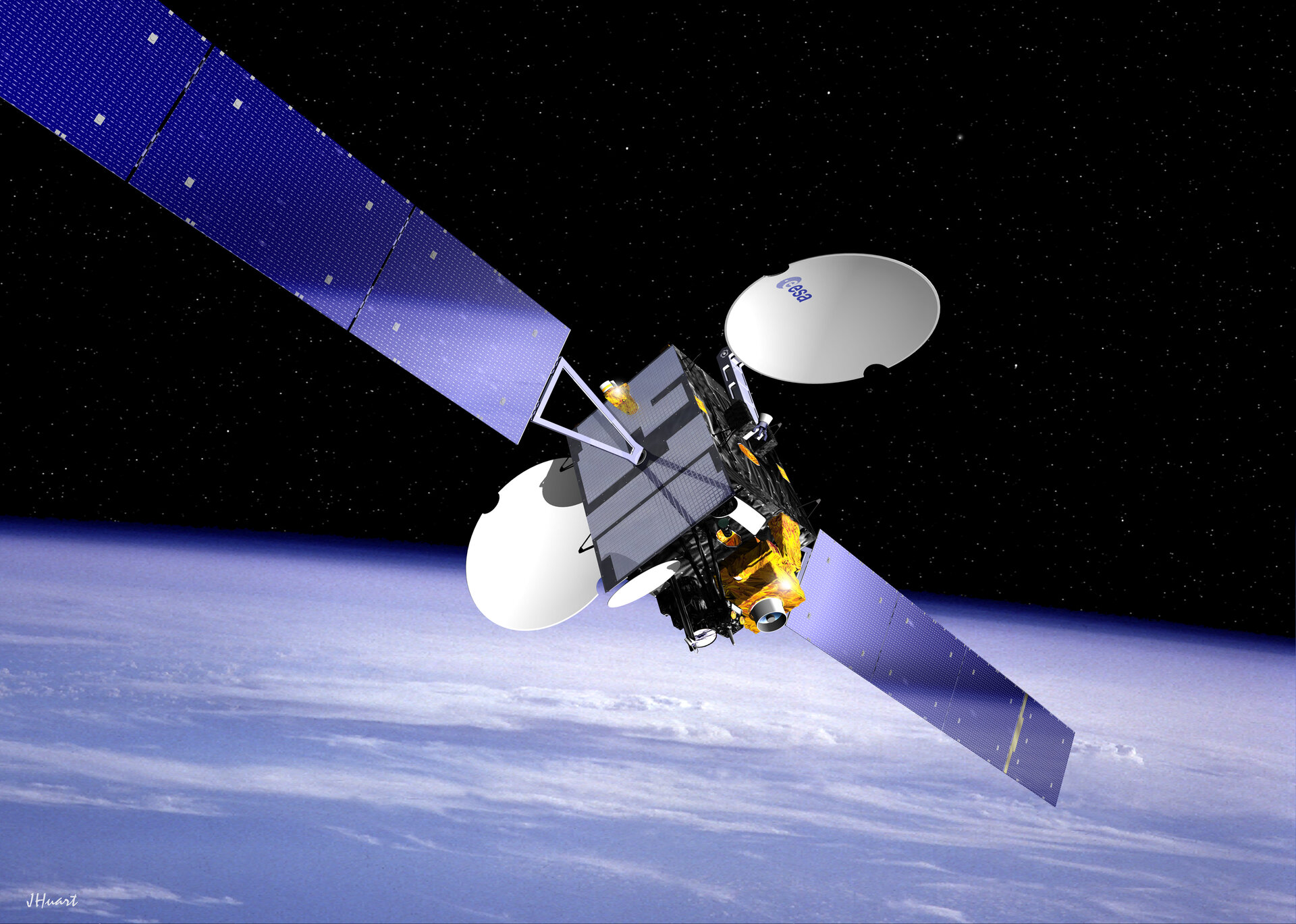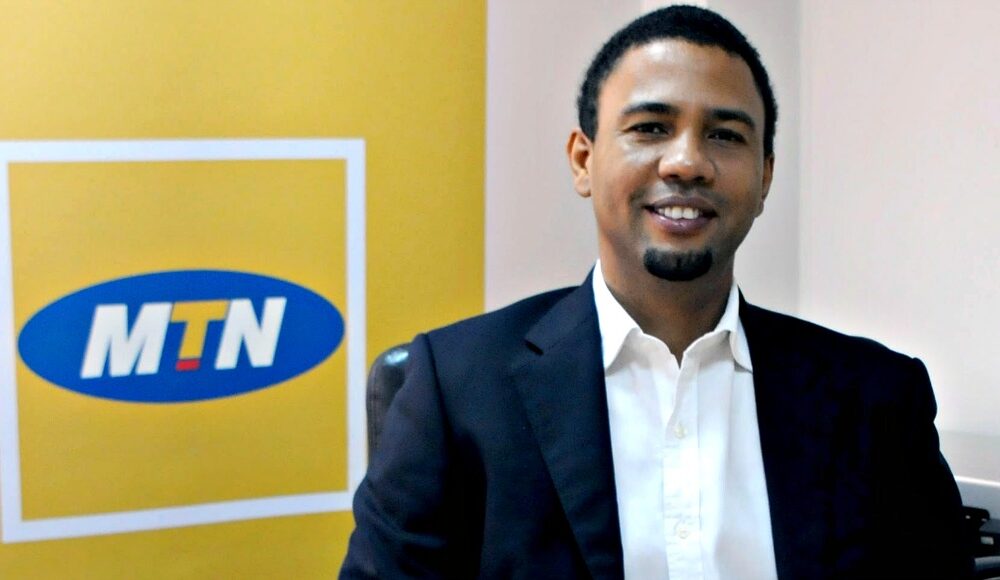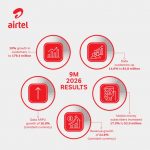Technology
Accenture Identifies Five Emerging Technology Trends for Companies in 2019

The enterprise is entering a new “post-digital” era, where success will be based on an organization’s ability to master a set of new technologies that can deliver personalized realities and experiences for customers, employees and business partners, according to Accenture Technology Vision 2019, the annual report from Accenture (NYSE: ACN) that predicts key technology trends that will redefine businesses over the next three years.
According to this year’s report, “The Post-Digital Era is Upon Us — Are You Ready for What’s Next?,” the enterprise is at a turning point.
Digital technologies enable companies to understand their customers with a new depth of granularity; give them more channels with which to reach those consumers; and enable them to expand ecosystems with new potential partners. But digital is no longer a differentiating advantage — it’s now the price of admission.
In fact, nearly four in five (79 percent) of the more than 6,600 business and IT executives worldwide that Accenture surveyed for the report believe that digital technologies — specifically social, mobile, analytics and cloud — have moved beyond adoption silos to become part of the core technology foundation for their organization.
“A post-digital world doesn’t mean that digital is over,” said Niyi Tayo Accenture’s Technology Managing Director. “On the contrary — we’re posing a new question: As all organizations develop their digital competency, what will set YOU apart? In this era, simply doing digital isn’t enough. Our Technology Vision highlights the ways in which organizations must use powerful new technologies to innovate in their business models and personalize experiences for their customers. At the same time, leaders must recognize that human values, such as trust and responsibility, are not just buzzwords but critical enablers of their success.”
The Technology Vision identifies five emerging technology trends that companies must address if they are to succeed in today’s rapidly evolving landscape:
DARQ Power: Understanding the DNA of DARQ. The technologies of distributed ledgers, artificial intelligence, extended reality and quantum computing (DARQ) are catalysts for change, offering extraordinary new capabilities and enabling businesses to reimagine entire industries. When asked to rank which of these will have the greatest impact on their organization over the next three years, 41 percent of executives ranked AI number one — more than twice the number of any other DARQ technology.
Get to Know Me: Unlock unique consumers and unique opportunities. Technology-driven interactions are creating an expanding technology identity for every consumer. This living foundation of knowledge will be key to understanding the next generation of consumers and for delivering rich, individualized, experiencebased relationships. More than four in five executives (83 percent) said that digital demographics give their organizations a new way to identify market opportunities for unmet customer needs.
Human+ Worker: Change your workplace or hinder your workforce. As workforces become “human+” — with each individual worker empowered by their skillsets and knowledge plus a new, growing set of capabilities made possible through technology — companies must support a new way of working in the postdigital age. More than two-thirds (71 percent) of executives believe that their employees are more digitally mature than their organization, resulting in a workforce “waiting” for the organization to catch up.
Secure Us to Secure Me: Enterprises are not victims, they’re vectors. While ecosystem-driven business depends on interconnectedness, those connections increase companies’ exposures to risks. Leading businesses recognize that security must play a key role in their efforts as they collaborate with entire ecosystems to deliver best-in-class products, services and experiences. Only 29 percent of executives said they know their ecosystem partners are working diligently to be compliant and resilient with regard to security.
MyMarkets: Meet consumers at the speed of now. Technology is creating a world of intensely customized and on-demand experiences, and companies must reinvent their organizations to find and capture those opportunities. That means viewing each opportunity as if it’s an individual market—a momentary market. Six in seven executives (85 percent) said that the integration of customization and real-time delivery is the next big wave of competitive advantage.
According to the report, innovation for organizations in the post-digital era involves figuring out how to shape the world around people and pick the right time to offer their products and services. They’re taking their first steps in a world that tailors itself to fit every moment — where products, services and even people’s surroundings are customized and where businesses cater to the individual in every aspect of their lives and jobs, shaping their realities.
One company taking individualization and customization to a new level is Zozotown, Japan’s biggest e-commerce company. Its skintight spandex Zozosuits pair with the Zozotown app to take customers’ exact measurements; custom-tailored pieces from the company’s in-house clothing line arrive in as few as 10 days. And it’s not just in the fashion industry where technology is enabling customization previously not possible. U.S. retailer Sam’s Club developed an app that uses machine learning and data about customers’ past purchases to auto-fill their shopping lists; the company plans to add a navigation feature to show optimized routes through the store to each item on that list.
The report notes that companies still completing their digital transformations are looking for a specific edge, whether it’s innovative service, higher efficiency or more personalization. But post-digital companies are out to surpass the competition by combining these forces to change the way the market itself works — from one market to many custom markets — on-demand and in the moment, just as Chinese e-retail platform JD.com is doing with its “Toplife” platform.
The service helps third parties sell through JD by setting up customized stores, providing access to its supply chain with cutting-edge robotics and drone delivery. In partnership with Walmart, a physical store in Shenzhen will offer more than 8,000 products available in person or delivered from the store in under 30 minutes.
By offering unprecedented customization and speed, JD is empowering other companies while creating a new market for itself. For almost two decades, Accenture has taken a systematic look across the enterprise landscape to identify emerging technology trends that hold the greatest potential to disrupt businesses and industries.
Technology
Nigeria to Buy Two New Communication Satellites to Drive Digital Growth

By Adedapo Adesanya
Nigeria will purchase to new communication satellites to boost Nigeria’s digital infrastructure as part of efforts to achieve President Bola Tinubu’s plan to grow the economy to $1 trillion.
The Minister of Communications and Digital Economy, Mr Bosun Tijani, disclosed this on Wednesday in Abuja at a press conference to mark Global Privacy Day 2026, organised by the Nigerian Data Protection Commission (NPDC).
Mr Tijani said the approval marked a significant shift in Nigeria’s digital strategy, noting that the country currently stands out in West Africa for lacking active communication satellites, a gap the new assets are expected to address.
“As you know, Mr President has been very clear about his ambition to build a $1 trillion economy, and digital technology is central to achieving that vision,” adding that, “The President has now approved that we should procure two new satellites. Nigeria today is the only country in West Africa with non-communication satellites. And we have been given the go-ahead to procure two new ones, ensuring that we can use that satellite to connect.”
He also said progress had been made on the Federal Government’s flagship 90,000-kilometre fibre optic backbone project, which is aimed at expanding broadband access across the country. According to the minister, about 60 per cent of the fibre project has been completed, while funding for the remaining work has already been secured.
“The 90,000 kilometres fibre optic project is not a dream. About 60 per cent of the work has already been completed, and the funding for the project is secure. As we bring more Nigerians online, connectivity without protection is incomplete. Privacy is the foundation of trust, safety, and sustainability in the digital world.”
“The success of Nigeria’s digital economy will depend not just on infrastructure and talent, but on trust, and the NDPC remains central to building that trust,” the minister said.
Mr Tijani said the Tinubu administration was positioning digital technology as a key driver of inclusive growth, improved public service delivery, and long-term economic expansion, adding that investments were also being channelled into digital skills, rural connectivity, and institutional reforms.
He stressed that the expansion of connectivity must be matched with stronger data protection, especially as Nigeria’s young and digitally active population continues to grow.
Recall that Nigerian Communications Commission (NCC) recently granted licenses to three global internet service providers – Amazon’s Project Kuiper, BeetleSat-1, and and Germany-based Satelio IoT Services – as part of efforts to strengthen internet connectivity via satellite and to boost competition among existing internet service providers in the country.
Technology
DataPro Predicts Surge in Individual Claims, Constitutional Privacy Actions

By Dipo Olowookere
In 2026, there should be a surge in individual claims and constitutional privacy actions, a leading Data Protection Compliance Organisation (DPCO) in Nigeria, DataPro, has projected.
In a statement signed by its Head of Emerging Services, Ademikun Adeseyoju, the company noted that this means organisations must remain “litigation ready” by preserving processing records and strengthening internal controls.
In the disclosure to prepare for this year’s Privacy Week themed Privacy in the Age of Emerging Technologies: Trust, Ethics, and Innovation, it noted that 2026 would also be defined by board and executive ownership, as privacy will no longer be an IT-only concern but a standing governance issue requiring regular risk reports and dedicated budgets.
“DataPro anticipates intensity on sector-specific enforcement, with the NDPC (Nigeria Data Protection Commission) focusing on high-risk industries like fintech, healthcare, etc,” a part of the statement made available to Business Post on Wednesday said.
Giving a review of key milestones from the 2025 ecosystem, DataPro said the NDPC moved decisively into active enforcement, publicly naming non-compliant entities, particularly in the financial services sector.
It also said the year witnessed landmark court rulings, affirming that transparency in personal data handling is a constitutionally protected right, as courts awarded significant damages to data subjects for privacy breaches, signalling that organisational size no longer shields against accountability.
The firm noted that regulatory settlements with multinational technology firms have set a high bar for behavioural advertising and data processing standards in Nigeria.
In the cybersecurity landscape, the year under review experienced an unprecedented surge in cyber threats, as attackers shifted their focus from technical exploits to identity-driven campaigns, targeting valid credentials with high precision.
“This identity-centric threat environment has made robust access management a non-negotiable requirement for corporate resilience,” it stressed.
As for the 2026 Privacy Week, DataPro has lined up activities, with launch of the Privacy Pulse A year-in-review of Nigeria’s Data Protection Ecosystem on Thursday, January 29.
The next day, a webinar tagged Privacy Pulse to train attendees on the new mandatory bi-annual in-house audits and DPO certification requirements will hold and next Monday, there is an interactive quiz designed to test organizational response to identity-driven cyber campaigns.
A social media session answering complex privacy questions via concise 30-second videos is slated for Tuesday, February 3, and the next day, it is for a social media showcase where winners will be selected for their insights on building Trust, maintaining Ethics in AI, and fostering Innovation under the NDPA.
Technology
MTN Nigeria Suffers 9,218 Fibre Cuts in 2025

By Adedapo Adesanya
MTN Nigeria has revealed that it experienced 9,218 fibre cuts in 2025, causing widespread network disruptions across the country.
The telecommunications giant also reported that 211 sites were affected by theft and vandalism as of November 30, 2025, impacting essential services relied upon by customers daily.
The company recorded a total of 1,624,263 customer complaints, all of which were resolved across various service channels during the year. Despite these challenges, MTN reached 85 million subscribers by September 2025.
The chief executive of the telco, Mr Karl Toriola, made these revelations in his latest post on LinkedIn, acknowledging the company’s responsibility for network performance and its efforts to improve the customer experience.
He stated that the services fell short of customers’ expectations and clarified that some of these gaps were shaped by real operational challenges such as fibre cuts, theft, and vandalism.
“Their impact is felt directly by customers and reflected in what they tell us. We take responsibility for the signals we receive and for how we respond to the realities that shape the customer experience on our network,” he said.
Regardless, Mr Toriola added that, “There is progress to be proud of. And we clearly still have work to do.”
“We are not where we want to be yet, but our commitment to putting the customer at the centre of everything we do remains constant.”
As MTN prepares to celebrate its 25th anniversary in 2026, Mr Toriola reaffirmed the company’s dedication to listening to customers, responding quickly to issues, and driving consistent service improvements.
Some other milestones announced include addressing 1,624,263 customer complaints across all communication channels as well as receiving best network recognition from Ookla, getting back to profitability, and declaring interim dividends to shareholders.
The report comes in the wake of a February 2025 initiative by the Federal Ministry of Works and the Federal Ministry of Communications, Innovation, and Digital Economy, which established a joint standing committee on the protection of fibre optic cables in Nigeria.
-

 Feature/OPED6 years ago
Feature/OPED6 years agoDavos was Different this year
-
Travel/Tourism9 years ago
Lagos Seals Western Lodge Hotel In Ikorodu
-

 Showbiz3 years ago
Showbiz3 years agoEstranged Lover Releases Videos of Empress Njamah Bathing
-

 Banking8 years ago
Banking8 years agoSort Codes of GTBank Branches in Nigeria
-

 Economy3 years ago
Economy3 years agoSubsidy Removal: CNG at N130 Per Litre Cheaper Than Petrol—IPMAN
-

 Banking3 years ago
Banking3 years agoSort Codes of UBA Branches in Nigeria
-

 Banking3 years ago
Banking3 years agoFirst Bank Announces Planned Downtime
-

 Sports3 years ago
Sports3 years agoHighest Paid Nigerian Footballer – How Much Do Nigerian Footballers Earn












